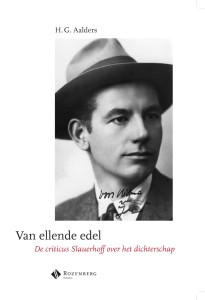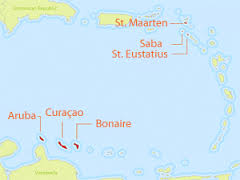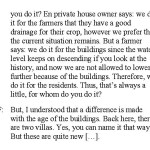Van ellende edel. De criticus Slauerhoff over het dichterschap ~ Inhoudsopgave & Woord vooraf
1. Inleiding
2. Demonen en dode zielen: Ruslands letterkunde
3. Stéphane Mallarmé: mysterieuze hersenspinsels en het vrije vers
4. ‘In den beginne was het Woord’: een beginselverklaring
5. Jules Laforgue: ‘stoutmoedige acrobaat in tijd, ruimte en gebied van het ik’
6. Arthur Rimbaud: ‘Mijn doode kameraad, ontembre zwerver, burgerterger’
7. Tristan Corbière: ‘Mijn broederziel, wiens incarnatie ik misschien ben’
8. ‘Het geval Lautréamont’: de logica van een abnormaal individu
9. Rainer Maria Rilke: ‘het móeten zwerven’
10. ‘Gorters werk bezitten is al een groot geluk’. Slauerhoff en het vrije vers
11. Slauerhoff polemist
12. Recapitulatie
13. De identiteit van de dichter. Slauerhoffs vers-praktijk
14. ‘Van ellende edel’. Besluit
Bijlage I. Slauerhoffs publicaties beschouwend proza
Bijlage II. Een selectie uit Slauerhoffs poëticale gedichten
Bijlage III. Corbières besproken gedichten
Bijlage IV. Slauerhoffs stuk over Lautréamont
Bijlage V. Slauerhoffs besproken gedichten
Bibliografie
Extra: VARA ~ De wereld draait door: Van Dis en Meinderts over de nalatenschap van Slauerhoff
Rozenberg Publishers 2005 – ISBN 90 5170 516 6
Woord vooraf
Dit proefschrift was een project dat voor het grootste deel tot stand kwam in stilte en in de eenzame teruggetrokkenheid van studeerkamer, bibliotheek en archief. Toch had deze arbeid niet zonder anderen gerealiseerd kunnen worden. Een aantal mensen wil ik daarom op deze plaats bedanken voor hun bijdrage aan de totstandkoming van dit boek. Read more
Van ellende edel ~ Inleiding ~ Want wie vond ooit door te zoeken?
 1.1 Probleem- en doelstelling
1.1 Probleem- en doelstelling
‘Vanouds bracht reeds het dichter-zijn met zich mee, het móeten zwerven’, schrijft Slauerhoff in 1925 in een bespreking over Rilke.[i] Behalve het beroep dat hij op de Oudheid doet, valt het op dat Slauerhoff hier twee kenmerken van het dichterschap geeft: de aanwezigheid van een dwingende macht die de dichter in zijn ban houdt, en de geneigdheid van de dichter tot zwerven, tot een reizend leven dat een sedentair bestaan uitsluit.
Beide opvattingen heeft Slauerhoff in vers-theorie en vers-praktijk beleden. Zowel de door een demonische macht beheerste dichter, die hem tot scheppen dwingt, ook al wil hij het niet, als de onrustig dolende dichter (‘De dichter gaat de wereld rond’), vindt in het werk van Slauerhoff zijn duidelijkste verschijning in de figuur van de poète maudit.
Anders dan dat van tijdgenoten en collega-dichters als Marsman, Nijhoff, Bloem en Vestdijk is het kritisch werk van Slauerhoff altijd op de achtergrond gebleven. Het is het minst bekende deel van zijn oeuvre. Zijn brieven genieten zelfs meer bekendheid. De grote belangstelling voor de persoonlijkheid van de dichter Slauerhoff zal hier wel de reden voor zijn. Maar door een biografische bril bezien is het kritisch werk uiterst verhelderend. Het vormt dan ook een onlosmakelijk onderdeel van zijn levensbeschrijving. Opvallend is bijvoorbeeld Slauerhoffs vroege belangstelling voor Franse auteurs, in het bijzonder enkele dichters uit het Franse symbolisme[ii] en poètes maudits van het fin de siècle, aan wie hij tussen 1919 en 1925 een zestal stukken wijdde. Behalve een persoonlijke typering en interpretatie van deze auteurs en hun werk laten deze artikelen ook zien hoe Slauerhoff dacht over zaken die zijn eigen poëzie betroffen. Read more
Laura Bliss & Aarian Marshall ~ How High-Tech Maps Could Help Urban Slums Plan Better Streets
In slums, buildings are often so densely packed that many are cut off from streets and pathways. This creates a literal roadblock to much-needed public resources.
“In South Africa, governments will often say that informal settlements are too dense to install adequate services,” Charlton Ziervogel, deputy director at the Communities Organization Resource Centre, a Cape Town-based slum advocacy and support NGO, tells CityLab. “So you’ll find municipalities that install toilets, but only at the edge of a settlement, because they perceive that there is no space inside.”
It’s a serious matter. Across the global south, hundreds of millions live in slums lacking piped water, proper drainage, and sanitation—ideal breeding grounds for virus-carrying insects and other types of disease. To fight epidemics such as Zika, experts warn, living conditions for the urban poor must be improved. But to do so, many slum communities first need to open up space.
Read more: http://www.citylab.com//high-tech-map
Wouter Veenendaal ~ Smallness And Status Debates In Overseas Territories: Evidence From The Dutch Caribbean
 While non-sovereignty is often presented as a rational and pragmatic political status option, this paper asserts that the smallness of overseas territories in various ways obstructs and distorts the formation of an informed local public debate about this political status. Due to personalistic politics, patron-client relations, excessive executive dominance, and the lack of professional media, which all are consequences of a small population size, the extent to which citizens of overseas territories are involved and represented in status debates is limited. The paper uses the 2010 political reforms of the Dutch Caribbean islands as an illustrative case study, to show how the smallness of these islands has obstructed a balanced consideration of status options among the population.
While non-sovereignty is often presented as a rational and pragmatic political status option, this paper asserts that the smallness of overseas territories in various ways obstructs and distorts the formation of an informed local public debate about this political status. Due to personalistic politics, patron-client relations, excessive executive dominance, and the lack of professional media, which all are consequences of a small population size, the extent to which citizens of overseas territories are involved and represented in status debates is limited. The paper uses the 2010 political reforms of the Dutch Caribbean islands as an illustrative case study, to show how the smallness of these islands has obstructed a balanced consideration of status options among the population.
Full text: http://www.tandfonline.com/
- Page 2 of 2
- previous page
- 1
- 2


